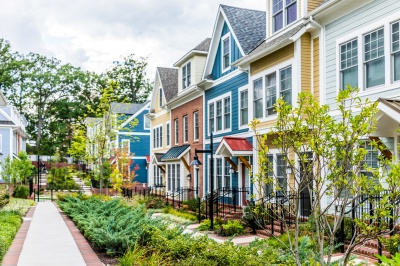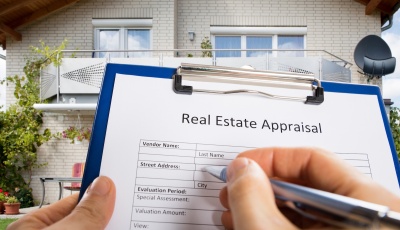

-
No payment option available*
-
HECMs are federally insured.
-
Same products, limits, LTVs, and rates as traditional mortgages
-
Excellent planning tool to fund retirement
-
Must be 62 years old, or older
-
Applies only to owner-occupied, primary residences
-
Mandatory HUD counseling
-
The homeowner is still responsible for property taxes, homeowners insurance, upkeep and any relevant HOA fees.

Greenway Mortgage is here to help every step of the way. We want to assure a smooth mortgage application and approval process so we put together a guide JUST FOR YOU.
Here's what you need to know about Bank Statements and Deposits
Always provide ALL numbered pages of a bank statement
For example, while “Page 1 of 8” may be just a cover sheet, and “Page 8 of 8” may just be a blank page – an underwriter may not know that. Please include ALL pages of your bank statement to avoid confusion and delays.
Any deposit that’s not clearly identifiable as being from an employer can be subject to scrutiny
As a result, you may be asked to provide documentation to identify the source and purpose of these funds. Please have these ready!
Document your deposits
Get in the habit of making copies of all checks and deposit slips. Taking a picture on your phone is a great way to do this!
Be extra careful with cash
Don’t mix cash and checks together, in deposits or transactions. If you have to use cash, make sure you can document the source of the funds.
A transfer is treated the same way as a deposit
Whether its from your account or a gift from friends and family, its treated the same way as a deposit, and needs to be well documented.
Are You Ready to Push the Button?
We’re ready to help. From Pre-approval, to comparative property analysis, through closing and beyond. That’s what we do every day, and we do it well. Reach out at your convenience, and let’s work together to achieve your homeownership goals.

What is a townhouse and is townhome living right for you? Today we’ll uncover everything you need to know.
Some may say that a townhouse is perfect for first-time home buyers and empty nesters as they provide the perfect alternative to owning a single-family home. If the idea of living in a townhouse has never crossed your mind before, you may not be familiar with what makes them so desirable.
What exactly is a townhouse?
A townhouse is an individually owned, multi-floor home that is attached to one or more units. The residents own and are responsible for the interior and exterior of their townhome. Townhouses look a lot like the traditional detached homes but tend to operate more like a condo. What does this mean? If you buy a townhouse, you might be part of a homeowner’s association. More on this later.
Townhouses are popular in dense urban and suburban areas and are known for their architectural style, consist of an attached home with shared walls, multiple stories, and sometimes have a front and back yard. Like condos, they share common spaces such as the pool. All in all, townhouses can be an affordable way for home buyers to get into a home in an expensive area.
Let’s take a look at some of the advantages and disadvantages of townhouse living to help give you a better idea if a townhouse fits your lifestyle.
What are some advantages to living in a townhouse?
Cheaper than Owning a Single-Family Home
Townhouses tend to be more affordable than single-family homes. And, if you’re considering buying a townhouse over renting, a townhouse has similar monthly costs. In addition, by owning a townhouse you will build equity.
Lower Maintenance
The great thing about townhouses is that sometimes there are front and backyards. And the best part is that most townhome HOA’s take care of landscape maintenance. So, if you’re not a fan of mowing the lawn, trimming shrubs, or pulling weeds you’re looking at the right type of real estate investment.
Location
Townhomes are certainly situated in convenient locations. You will not find yourself in the middle of nowhere. In fact, a townhome will put you near plenty of amenities such as shopping, dining and entertainment.
Sense of Community
Unlike owning a single-family home where you have a few neighbors spread apart, with townhome living your neighbors are must closer, making it feel more like a close-knit community!
Amenities
Did we mention convenience and amenities? Many of the services and amenities that you need will be included in the HOA fee or purchase price. What does this include? It includes things such as pest control, HVAC inspections, trash service, as well as amenities like swimming pools and gyms.
Freedom
Townhouses are similar to condos, but there is definitely one clear difference. If you own a condo you have ownership rights over the interior of the structure. When you buy a townhome, you usually own the exterior as well (check your HOA rules and regulations).
In addition, if you have a furry friend, we have good news. Your townhouse community may allow pets which is great because most come with a backyard! Make sure to check with the townhome association to see if pets are allowed.
What are some disadvantages to living in a townhouse?
Less Privacy
Townhouse living means sharing a wall with your neighbors on either side. This could ultimately be a deciding factor for your especially if you’re living next to someone who isn’t the most courteous neighbor. Keep in mind, your backyard will not be as private as if you were to own your own home.
More Responsibility
If you’re comparing townhouses to condos, townhouses come with more responsibility in terms of repairs and maintenance.
HOA Rules & Regulations
Take time to learn about the homeowner’s association. It’s important that before you decide to buy a townhouse you read up on the HOA rules and regulations and make sure to ask any important questions. Keep in mind, some townhouse communities have communal areas such as swimming pools and parking lots. These are probably controlled by the HOA. In addition, while you may have ownership of the exterior of your property, some HOAs will regulate the kinds of improvements you are allowed to make. Every townhouse community’s rules and regulations are different.
HOA Fees Can Get Expensive
Lots of times, people buy townhouses to save money. HOA dues can add additional costs. It’s important to make sure you take those into account before buying. In the end, if your HOA fees are higher then expected, you won’t be saving much. Fees can also change or increase over time.
Resale Value
Resale values on townhouses sometimes lag values of single-family homes in certain markets.
Bottom Line:
As you can see, there are many pros and cons to townhouse living. It truly depends on what your wants and needs are. Ask yourself, “What do I want out of homeownership?”
Some people like the idea of living in a smaller space that offers the freedom of owning a single-family home with the amenities of living in a condo, while others might have a strong preference for a detached home or condo.
We suggest shopping around to compare different townhouse communities. See what best fits your lifestyle. And, if townhouse living is calling your name, take the next step by giving us a call or click here to get your free pre-approval.

An appraisal is an important step in the home buying process. Basically, an appraisal is a professional evaluation of the market value of the home you’d like to purchase. Appraisals are ordered by the lender to confirm or verify the value of the home prior to lending a buyer money for the purchase. On the other hand, a home inspection is different from an appraisal. How so? Home inspections assess the condition of the home before the transaction is finalized.
Let’s take a closer look at the two and find out why a home appraisal and a home inspection is needed.
What is a Home Appraisal?
The National Association of Realtors (NAR) explains:
“A home purchase is typically the largest investment someone will make. Protect yourself by getting your investment appraised! An appraiser will observe the property, analyze the data, and report their findings to their client. For the typical home purchase transaction, the lender usually orders the appraisal to assist in the lender’s decision to provide funds for a mortgage.”
An appraisal is required by the lender. When you apply for a mortgage, an unbiased appraisal is the best way to confirm the value of the home based on the sales price. Regardless of what you’re willing to pay for a house, if you’ll be using a mortgage to fund your purchase, the appraisal will help make sure the bank doesn’t loan you more than what the home is worth.
In today’s sellers’ market having an appraisal is extremely important especially when low inventory is driving an increase in bidding wars which can increase home prices. When sellers are in a strong position like this, they tend to believe they can set whatever price they want for their house under the assumption that competing buyers will be willing to pay more.
Lenders will only allow the buyer to borrow based on the value of the home. All in all, this is what helps keep home prices fair. If there’s every any discrepancy between the appraisal and the sale price of the home, your Real Estate Agent can help you navigate any additional negotiations.
What is a Home Inspection?
Here’s the key difference between an appraisal and an inspection. MSN explains:
“In simplest terms, a home appraisal determines the value of a home, while a home inspection determines the condition of a home.”
With a home inspection, one can determine the current state, safety, and condition of the home before the sale is made. If anything is questionable in the inspection process – like the age of the roof, the state of the HVAC system, or just about anything else – you as a buyer have the option to discuss and negotiate any potential issues or repairs with the seller before the transaction is final. Your Real Estate Agent can help you through this part of the process as well.
In a recent blog on 'What Should You Expect From a Home Inspection', find out how to choose an inspector, what you should expect during the inspection and learn about the things the inspector will review.
Bottom Line
The appraisal and the inspection are critical steps when buying a home, and you don’t need to manage them by yourself.
Have questions? Reach out to us today and we’ll give you the expert guidance you deserve to navigate through the entire home buying process.

Homeowners Associations (HOAs) often manage community interests, including maintenance of common areas and cohesion of community atmosphere, in a development.
Condominium buildings almost always have an HOA. Planned communities with common areas and amenities or the goal of adhering to certain standards often have HOAs, too. For more information on Condos and their HOA fees (and rules) check out our blog here.
Buyers will be bound by guidelines contained in a set of bylaws. An elected board of homeowners governs the HOA.
How much does an HOA cost?
HOA fees range from a low annual payment to monthly charges. Fees can cover taxes, insurance, utilities, maintenance and even staffing for common areas, amenities, and security.
The cost to homeowners is calculated by dividing total expenses among the number of individual properties. In some cases, like condos, costs will be prorated based on the size of the unit. HOA fees will be considered for qualification of your mortgage loan.
What should I know before I buy?
It’s important for buyers and legal counsel to review all HOA documents before a purchase to ensure activities planned for the property, such as renovations or rentals, are allowed.
An HOA can enhance life in your community by taking care of common interests and protecting property values. If you have questions about HOAs or home financing in general, let us know. The experts at Greenway Mortgage are here to help!

.png)


.jpg)
.jpg)

.jpg)